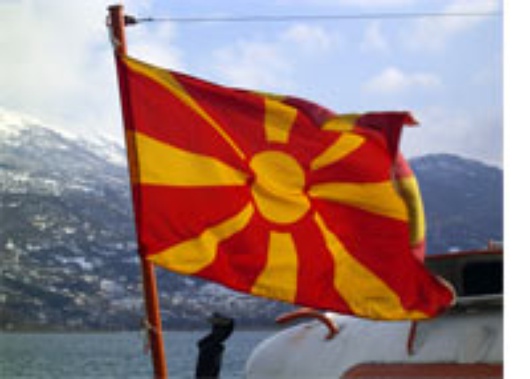Is Macedonia really stable?
Published on
Translation by:
 alexandra champion
alexandra champion
Macedonia, the last multiethnic Balkan State, smiles at the European Union who helped to end the civil war there in 2001. But frustrations still remain. Will stabilisation last?
 Whether through the Concordia Military mission (now replaced by the Proxima Police mission), the University of South-East Europe or through the recently asphalted roads, the whole of Macedonia is adorned with the European Union logo. And all this because, for the first time, Brussels managed to put a timely end to a civil war that was as short as it was violent. The EU has tried to make this diplomatic success last through continuing missions and omnipresent supervision permitted by Macedonia’s application, in February 2004, to join the European Union. This goes to show how Macedonia is an experiment for Europe, but it is also a way to test the EU's ability to establish peace and stability outside her borderlines using nation building, peace building and development aid, as the experts say.
Whether through the Concordia Military mission (now replaced by the Proxima Police mission), the University of South-East Europe or through the recently asphalted roads, the whole of Macedonia is adorned with the European Union logo. And all this because, for the first time, Brussels managed to put a timely end to a civil war that was as short as it was violent. The EU has tried to make this diplomatic success last through continuing missions and omnipresent supervision permitted by Macedonia’s application, in February 2004, to join the European Union. This goes to show how Macedonia is an experiment for Europe, but it is also a way to test the EU's ability to establish peace and stability outside her borderlines using nation building, peace building and development aid, as the experts say.
Life on the ground has hardly changed
The Ohrid peace agreements, signed on August 13th 2001 by Macedonia and Albania, planned to strengthen the protection of Albanian community rights in exchange for an end to the guerrilla war led by the UCK (Albanian National Liberation Army) and a reaffirmation of Macedonian territorial integrity. Before the reestablishment of multicultural coexistence, this compromise had to set a virtuous circle allowing “political stability, foreign investments, and development”.
However, today more than ever, this plan is under threat. The origins of the 2001 crisis did not lie in the community. Rather, it was the result of a strong and continual economic and social degradation, which coincided with the ability to express these frustrations in an “ethnic” register. And from this point of view, the situation is worse than it was before as those who once benefited from public employment in Macedonia are now worse off as a result of privatisation. As for the Albanians, their normal way of life has hardly changed: diaspora and business are their main sources of livelihood, while for people who live in rural areas like Matejce, nothing has changed since the war that occurred here: the mosques are destroyed, there are no jobs and graffiti biased in favour of the UCK is increasing. Also, as agreed in the Ohrid agreements, 20% of jobs in the Macedonian public sector are reserved for Albanians and since the FMI has asked for a decrease in the number of administrative posts, Macedonians are left feeling like victims of positive discrimination.
2.5% of the state budget is allocated to local authorities
And yet the European Union remains confident, convinced that decentralisation - the keystone of the Ohrid Agreement – will turn Macedonia into a well-governed democracy, the sine qua non of a market economy and foreign investments synonymous with stability. However, the decentralising finance law that was passed last summer only attributes 2.5% of the state budget to local authorities. With an average of 40% unemployment and a poor industrial base, developing the regions will be very difficult. Why has the coalition between the DUI Albanians (ex-UCK) and the SDSM Macedonians (post communist left- wing party) swallowed such a compromise? The answer is that this territorial division, which consists of redistributing power among the community, is more a solution to the ethnic and political problems than the economic ones.
On the map, airports, universities, borderline roads, and TV towers all remain in Macedonia.
To avoid any territorial expansions, western Albania was cut into sections, but each side benefited from this arrangement as it allows decisions to be made on a local level. Thanks to this gerrymandering, the DUI (ex-UCK) will have an influence that it has never experinced until now (the DUI was created in 2002) and thus it will oust its rival: the PDSH (The Albanian Democratic Radical Party)
Towards a bi-national State
Things seem to be developing along segregated lines as it is tempting to appease tensions by partitioning the land. For example, education is becoming more and more segregated, and market evolutions in real estate in Skopje, Tetovo and several other Northern villages are touched as well. Pragmatic decentralization will not slow this down. Rather the opposite. The Macedonians, who are well aware of this fact, fear that this division might lead to a bi-national State. Unexpectedly, they have succeeded in collecting enough signatures to organize a referendum about the territorial organization and an answer is expected on the 9th of November. We know one thing for sure: if it turns out to be successful, the coalition will be destroyed and a political crisis will result. If it is a failure, the frustrations among communities will become more pronounced. Another thing is that observers from the OSCE (Organisation for Security and Cooperation in Europe) are going to be deployed for what is not actually an election. Meanwhile, Romano Prodi went to Skopje on the 1st of October to present President Crvenkovski with an “application” questionnaire for entry into the EU in front of the Parliament members...
Translated from Macédoine : une stabilisation en trompe-l’oeil


